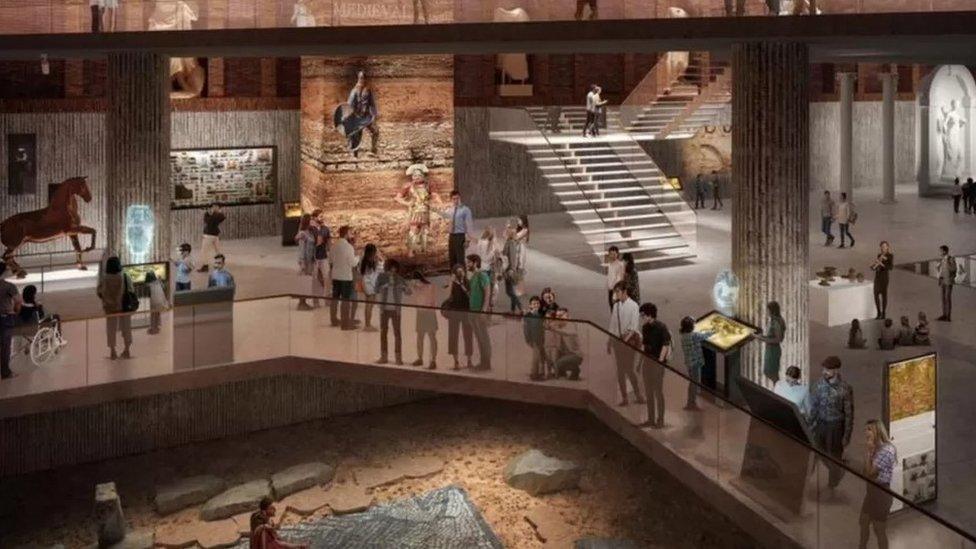How archaeological digs are boosting mental health
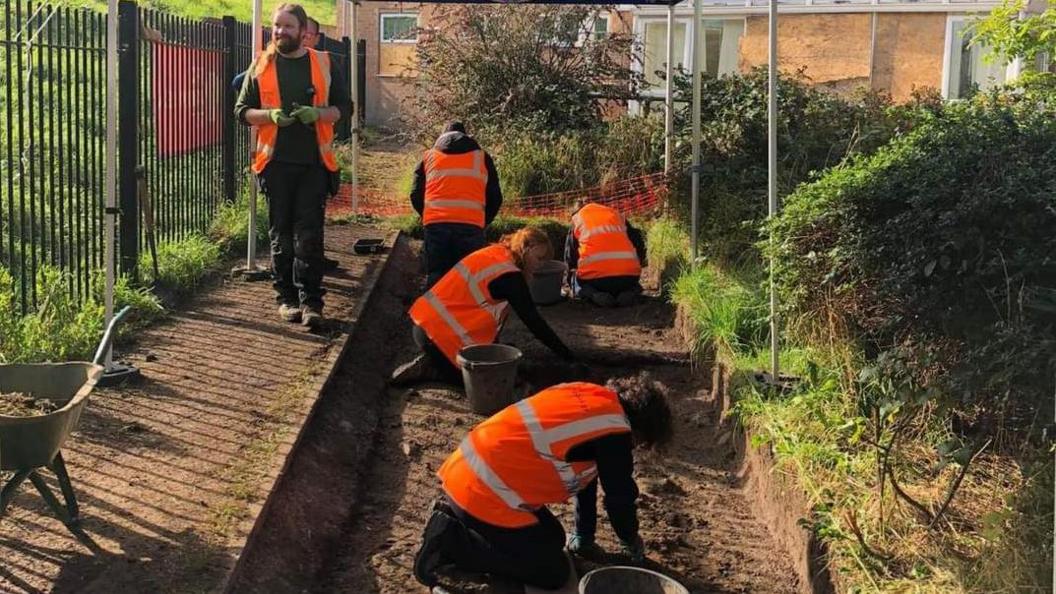
'Archaeology on Prescription' was launched in York in 2021
- Published
A project that has given people with learning disabilities and mental health issues the chance to take part in archaeological digs has been renewed for a further year.
Archaeology on Prescription in York is a "social prescribing" programme which participants are referred for by their GP to boost their confidence, wellbeing and social interactions.
The scheme is one of the first of its kind in the world, and enables those involved to work alongside archaeologists and gain new skills.
City of York councillor Pete Kilbane said it was "truly inspiring" to see the positive impact the project was having.
Its current base is the site of a former care home on Walmgate and is a partnership between the council and York Archaeology.
Local charities can also refer their service users, who then get the opportunity to carry out research using maps and census data, excavate trenches and catalogue finds.
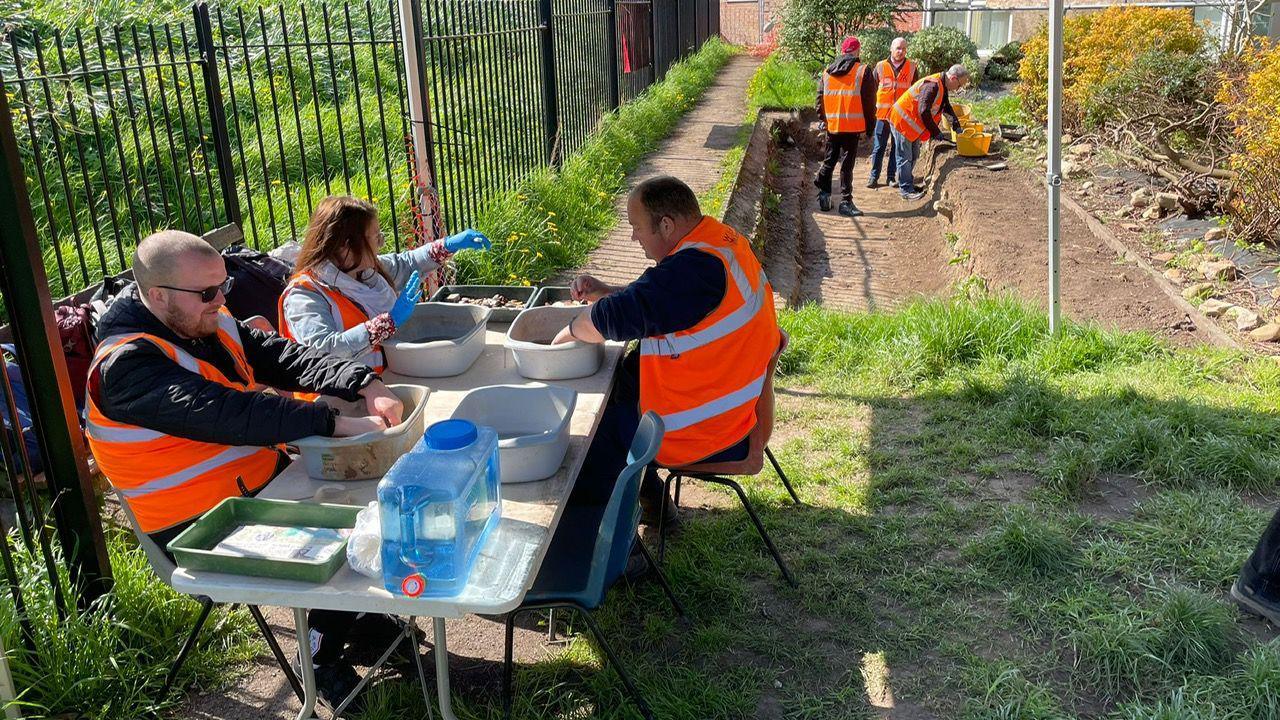
Participants can get involved in all aspects of archaeology
Participant Jane, who helped uncover the cellar of a Victorian terraced house, said the programme had helped her to regain her confidence after a period of illness.
“I was looking for something to do with my time and to meet new people, because I was new to York," she said.
“Since doing the dig, I’ve found that the confidence that I had while I was there has stayed with me, even when I haven’t been digging.”
Assistant community project manager Arran Johnson said the scheme would continue in 2025 with the aim of widening involvement and making archaeology more accessible.
City of York Council gave the project permission to dig on the site, know as Willow House and close to the medieval gateway at Walmgate Bar, as well as funding.
Mr Kilbane, the executive member for economy and culture, added: “The results have been transformative for many of the participants, who have had the opportunity not only to discover a new passion for archaeology, but to make social connections, gain new skills and build their confidence.”
Listen to highlights from North Yorkshire on BBC Sounds, catch up with the latest episode of Look North or tell us a story you think we should be covering here, external.
Related topics
- Published26 April 2024
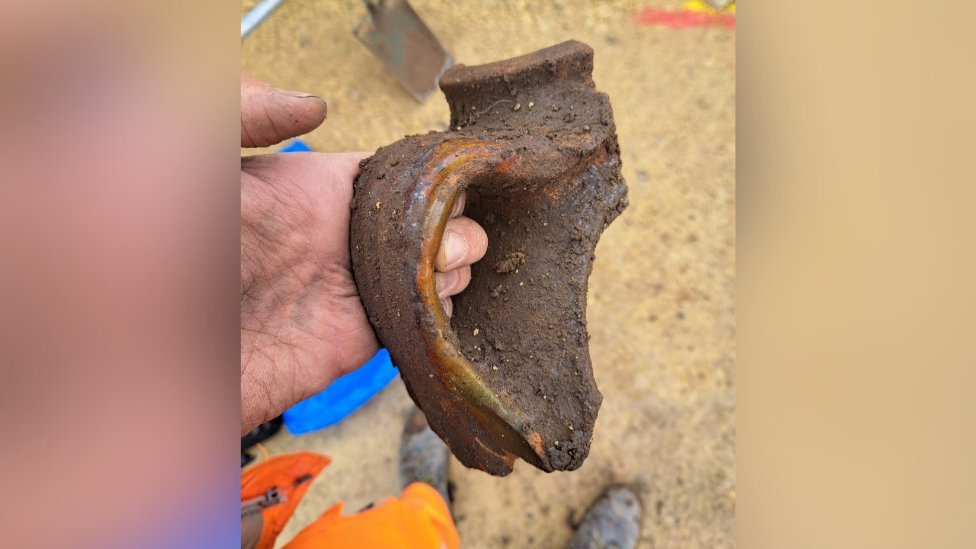
- Published9 October 2024
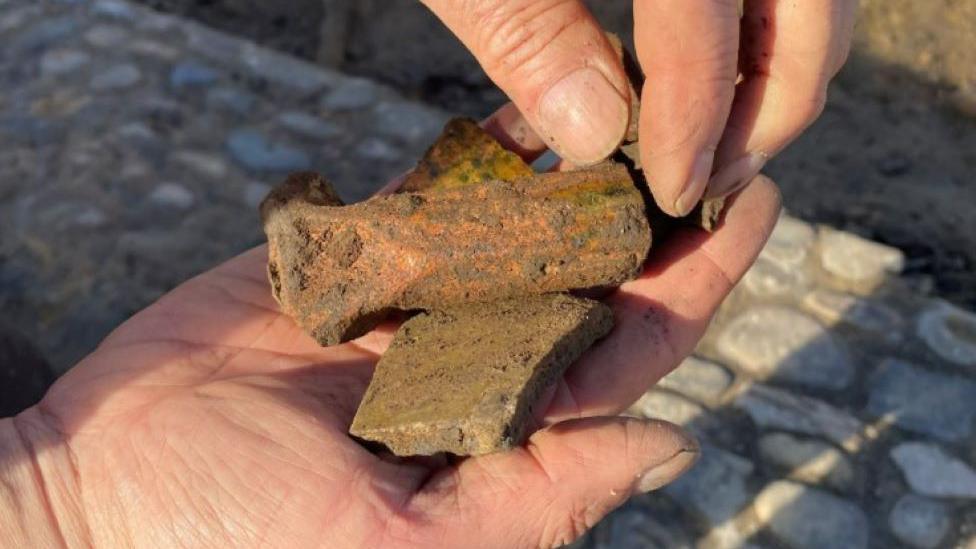
- Published1 February 2024
